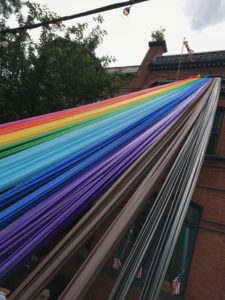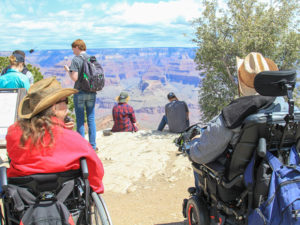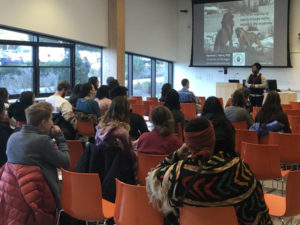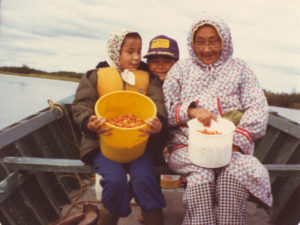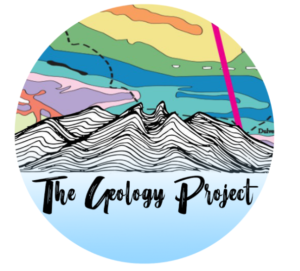May 26, 2020
A dispatch from the AGU archives: Five blogs on diversity, equity and inclusion
Posted by Caroline Gleason
By Caroline Gleason, AGU’s Spring 2020 Public Affairs Intern
The geosciences are among the least diverse STEM fields in the United States, with little improvement made over the past 40 years. As we stare down challenges ranging from COVID-19 to climate change, the need for a robust, diverse STEM workforce becomes clearer each day.
We, as scientists, must be deliberate in order to make diversity, equity and inclusion (DEI) a serious priority. As a white woman in STEM, I have experienced some of the challenges that face those from groups historically underrepresented in the sciences but cannot myself speak to the systemic barriers confronting scientists with less privilege than I have as a white person. We need spaces to share experiences and best practices so that everyone can move forward. This is the goal of AGU’s upcoming DEI Virtual Advocacy Days, where scientists will meet with their policymakers virtually to push for support on current bills like the Combatting Sexual Harassment in Science Act, the STEM Opportunities Act and the Rural STEM Education Act to build diversity and create a more equitable environment for our scientific community to thrive.
In that spirit, I looked through the archives of the AGU Blogosphere to highlight five pieces that touch on some key aspects of DEI. I encourage you to read more about these stories and other perspectives included as additional reading below:
At a glance: Though social media is certainly not, as the author writes, “a substitute for the systemic change we need to make science a truly inclusive endeavor,” for many scientists, “Science Twitter” and other platforms are a great way to build an inclusive environment, find other scientists who identify similarly similar to you and boost visibility for groups underrepresented in STEM fields.
2. Creating Spaces for Geoscientists with Disabilities to Thrive
At a glance: The geosciences have considerable room for improvement when it comes to supporting students with disabilities, but roadmaps do exist for a way forward. For example, an instructor simply showing awareness on the importance of accommodations goes a long way to begin building trust, which can foster the sense of belonging often necessary for students to persist in a field of study.
At a glance: Barriers to increasing diversity and inclusion are woven into the fabric of our institutions and it takes a lot more than a statement in support of diversity to make substantive change. It takes persistence, modeled here by graduate students in the Department of Geosciences at the University of Massachusetts– Amherst as they redesigned their department lecture series for the 2017-2018 school year. These students had to find creative ways to meet their DEI goals while also representing an array of research disciplines and balancing availability of invited speakers and faculty hosts, all of which led them to share what their ideal seminar series would look like in this piece.
4. Understanding Our Environment Requires an Indigenous Worldview
At a glance: The immense value of indigenous or traditional knowledge in decision-making processes is being recognized more and more in recent years, but special attention must be paid to the responsible and equitable use of this knowledge. It is not a one-for-one substitution or inclusion into existing Western frameworks, which are overwhelmingly hierarchical, because indigenous knowledge tends to be more complex and interconnected than a top-down system allows for. Without thoughtful integration of this knowledge, valuable information will inevitably be missed or lost to misunderstanding, mistranslation, or otherwise.
At a glance: The importance of plainspoken, timely and accurate science communication is universal, particularly when it comes to natural hazards. This means that science communication must be multilingual, as practiced by The Geology Project, a bilingual Earth science communication initiative that exemplifies en arroz y habichuelas, a Puerto Rican phrase meaning “simple, practical, real-world language.”
AGU’s Diversity, Equity and Inclusion Virtual Advocacy Days will run from 15-26 June 2020, with a virtual training on 9 June. Registration is open until 31 May here. [1 June edit: Registration is now closed. Check our Twitter @AGUSciPolicy for resources on how to engage if you missed the deadline!]
Additional Reading:
Keeping Indigenous Science Knowledge out of a Colonial Mold
Promoting Racial Diversity in Geoscience Through Transparency
Women in Oceanography Still Navigate Rough Seas
Shining a Spotlight on LGBTQ+ Visibility in STEM
Laying Proper Foundations for Diversity in the Geosciences
Bridging the Gap: Creating an inclusive world of geoscience learning


